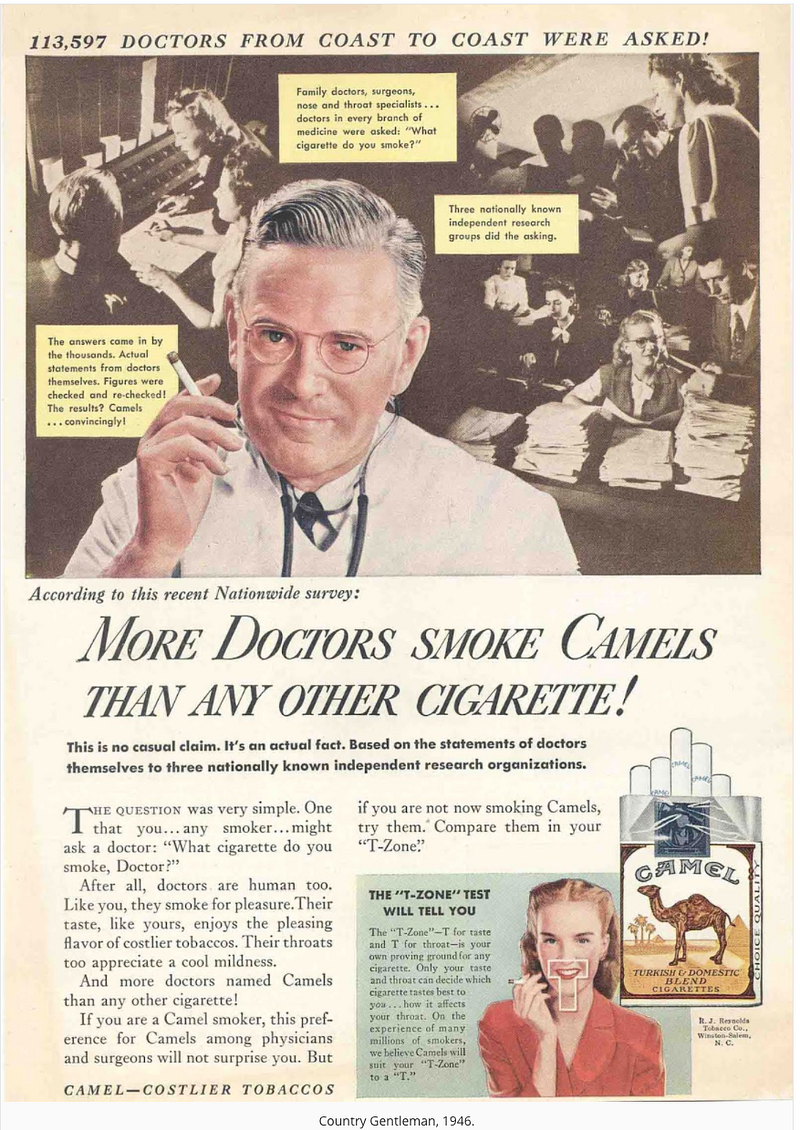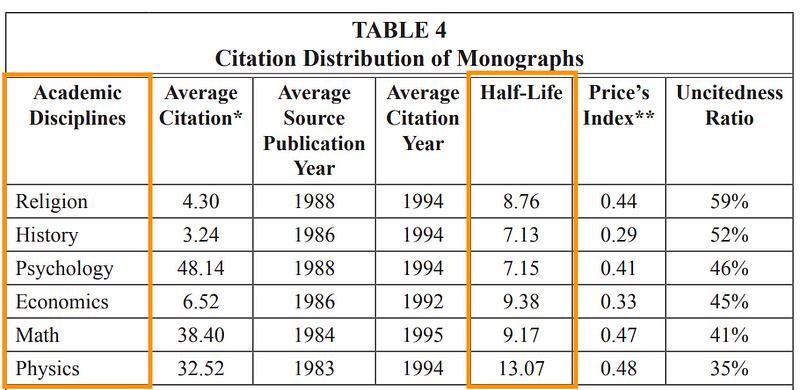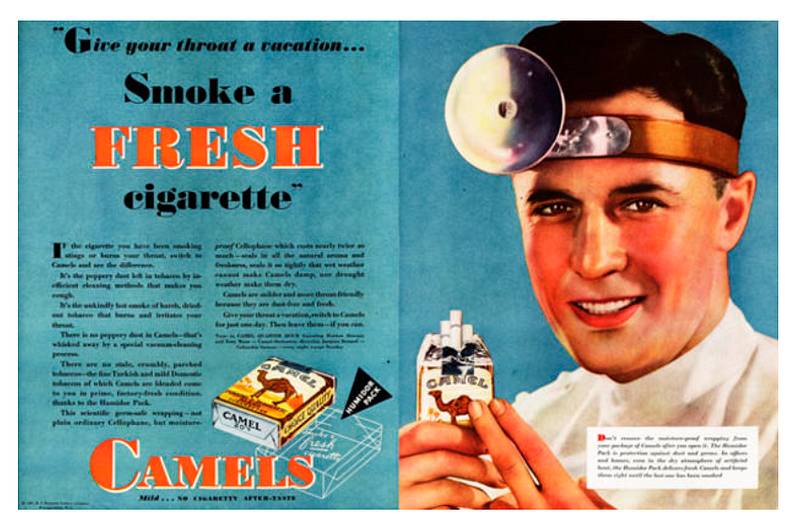Everything you know has an expiration date.

From the 1930s to the 1950s, doctors recommended smoking.
People who believed cigarettes were good for you weren’t stupid. They followed the tenor of their times.
Much of what we believe today will be wrong 50 years from now. Here’s the reason why and what you can do about it. Knowing the following concept will help you keep an open mind so you can become a lifelong learner.
The Half-Life of Knowledge
Half-life is the time it takes for a certain quantity to halve in value. Nobel Prize winner Ernest Rutherford discovered the concept in his work on radioactivity, but it also applies to everyday life.
The biological half-life of caffeine is around 6 hours. So when you drink a cup of coffee with 200 mg caffeine at 6 AM, you’ll still have 100 mg in your system around lunchtime. Another six hours later, and you’ll have 50 mg in your blood (which is why sleep scientists recommend not drinking coffee after lunch).
The half-life of knowledge works similarly: it measures the amount of time before half of the knowledge in one area is outdated or proven untrue.
As a med student, my fiancé takes hour-long multiple-choice exams every year. Yet, the box marked correct in the last year might not be correct in the next.
The half-life of medical knowledge is 18–24 months. Half of what doctors believe to be true today will be outdated in less than two years from now.
This iteration is not only true in medicine but in other academic disciplines.
Scientist Rong Tang explored 750 scholarly monographs to determine the half-life of knowledge. Here’s what he found:

Can we derive history has a knowledge half-life of 7 years? No. Tang’s research hasn’t been replicated, and he solely focused on books.
But there’s one thing to learn here: knowledge isn’t permanent. Most of what we consider truth today decays within a decade from now.
“We laugh at people who still use Windows 95, yet we still cling to opinions that we formed in 1995.”
What Most People Ignore For Too Long
Philosopher Bertrand Russell wrote almost a century ago, “the fundamental cause of the trouble is that in the modern world the stupid are cocksure while the intelligent are full of doubt.”
Changing your opinion when presented with conflicting evidence is one of the most valuable skills of the 21st century.
Psychologist and researcher Adam Grant dedicated an entire book to rethinking. One line stayed with me long after reading: “The purpose of learning isn’t to affirm our beliefs; it’s to evolve our beliefs.”
If Pulitzer Prize winner Kathryn Schulz read this statement, she would agree.
In ‘Being Wrong,’ she writes: “This is the pivotal insight of the Scientific Revolution: that the advancement of knowledge depends on current theories collapsing in the face of new insights and discoveries. In this model of progress, errors do not lead us away from the truth. Instead, they edge us incrementally toward it.”
Everything you know has an expiration date. But this change is nothing to be afraid of — it’s how you learn and progress.

“Facts change in regular and mathematically understandable ways.”
How You Can Benefit from This Concept
In 470 B.C. Philosopher Anaxagoras said, “Thunder was produced by the collision of the clouds, and lightning by the rubbing together of the clouds.”
We might laugh about ancient philosophers’ theories as they attempted to make sense of their world — but what are some of our current beliefs that will seem crazy in 50 years’ time?
Understanding that facts have a half-life helps you on many levels:
- You don’t cling to outdated beliefs. You keep an open mind and can make better sense of the world.
- You understand truth as an asymptote. We can never reach the absolute truth. But constant questioning and a curious mind lead to better approximations.
- You ask yourself: What do I believe that might be proven wrong soon? Looking for evidence that contradicts your worldview is how you become a lifelong learner.
In Summary
Just because you read something in a study doesn’t mean it remains true. Many scientific studies are cited long after they’ve been proven wrong.
Consider Howard Gardner’s ‘Theory of Multiple Intelligences.’ According to it, all students have learning styles: linguistic, musical, kinaesthetic, and spatial. The theory was published in the 80s, proven wrong in the 90s, and, as Alex Beard writes, “enshrined in teacher-training syllabuses in the 2010s.”
Question what you read. Change is the only constant in knowledge.
It’s impossible to know everything. Even if you do nothing but reading tons of papers on your subject, you can barely keep up with new knowledge.
Here’s what to keep in mind:
- update your beliefs when presented with evidence and new arguments
- remain aware of what you don’t know
- never stop learning
Because learning is the most valuable skill of our time.
“If knowledge is power, knowing what we don’t know is wisdom.”
Want to feel inspired and improve your learning?
Subscribe free to The Learn Letter. I read a book and 50 articles a week, and each Wednesday, you’ll receive the best in your inbox. This newsletter will make you find tools and resources that help you on your path to health, wealth, and wisdom.